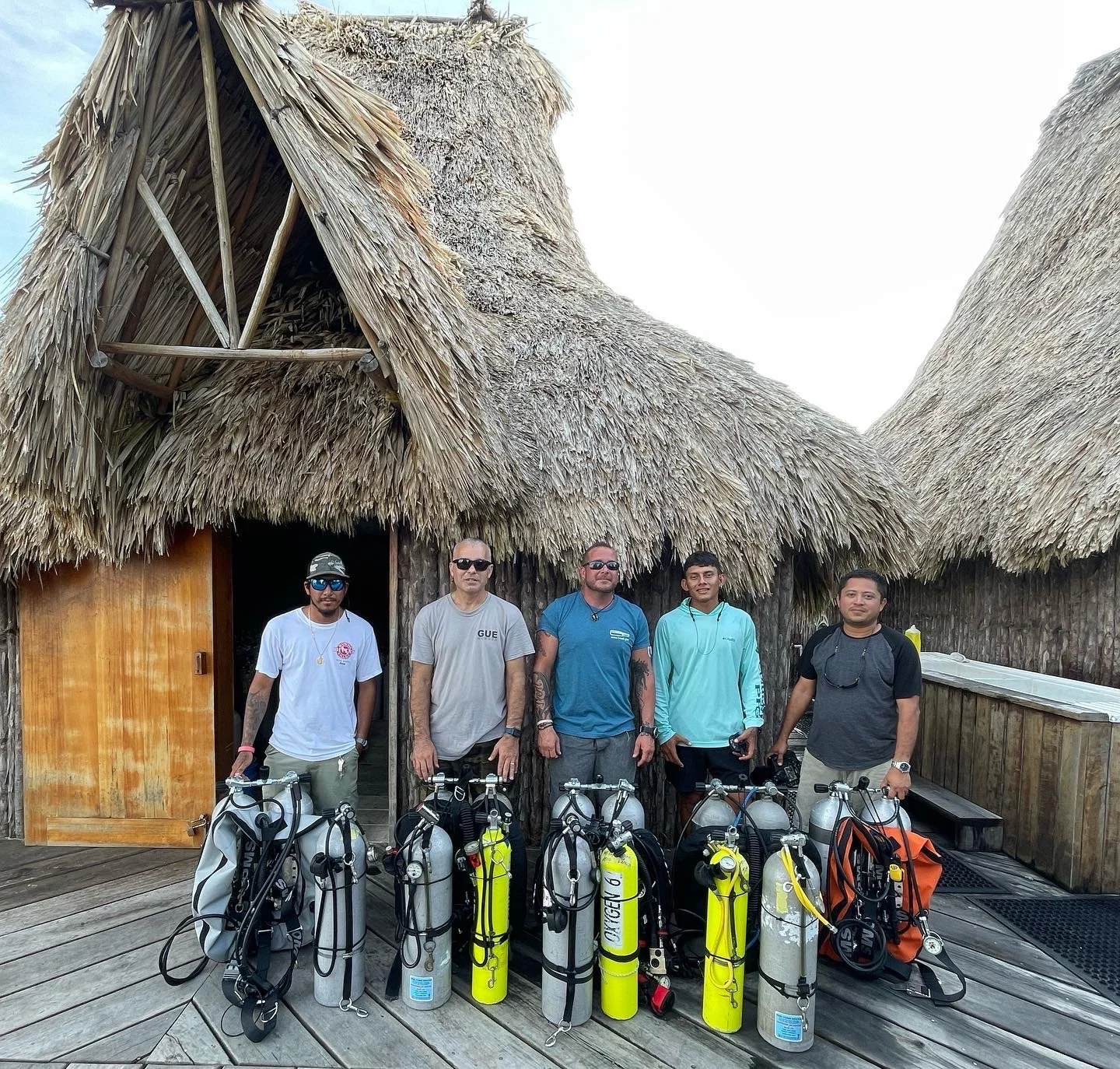Why Every Scuba Diver Should Consider Starting Technical Diving
As scuba divers, we all remember the thrill of our first dive—the feeling of weightlessness, the vibrant marine life, and the sheer joy of exploring the underwater world. But as you gain experience and log more dives, you may find yourself yearning for new challenges and deeper adventures. That’s where technical diving, or “tec diving,” comes into play. If you’ve ever felt the pull to go beyond recreational limits, here’s why you should consider taking the plunge into technical diving.
A technical CCR diver diving at the “Josie J” shipwreck (max depth 66 meters / 220 feet) located in West Bay - Roatan Island
1. Unlock New Depths and Dive Sites
One of the most compelling reasons to start technical diving is the opportunity to explore areas that recreational divers simply can’t reach. While recreational diving typically limits you to depths of 130 feet (40 meters), technical diving allows you to go far beyond this, often exceeding 200 feet (60 meters) and sometimes much deeper.
These depths open up a whole new world of dive sites—such as deep wrecks, submerged caves, and untouched coral formations—that are teeming with life and largely unexplored. Imagine being able to dive on a historical wreck that few have seen or navigating a labyrinthine cave system where every turn offers something new.
2. Challenge Yourself and Build New Skills
Technical diving is a natural progression for those who want to push their limits and expand their skill set. It requires a higher level of precision, planning, and understanding of dive theory compared to recreational diving. You’ll learn how to manage multiple gas mixtures, plan for decompression stops, and handle more complex dive equipment.
This advanced training not only makes you a more confident and capable diver but also gives you a deeper appreciation for the science and safety protocols that underpin all types of diving. The sense of accomplishment that comes with mastering these skills is immense, and it can reignite your passion for diving.
3. Experience Longer and More Complex Dives
Recreational diving often involves short dive times, especially at greater depths, due to the limits of no-decompression diving. Technical diving, however, introduces the concept of planned decompression stops, allowing for much longer bottom times and more intricate dives.
With the ability to extend your time at depth, you can fully explore larger wrecks, document deep reefs in detail, or even conduct scientific research. This aspect of tec diving is particularly appealing to underwater photographers, marine biologists, and wreck enthusiasts who need more time to achieve their objectives.
A technical CCR diver diving at the “Josie J” shipwreck (max depth 66 meters / 220 feet) located in West Bay - Roatan Island
4. Be Part of an Elite Community
Technical diving is often seen as the next level of diving, and those who pursue it become part of a close-knit, elite community of divers who share a passion for pushing the boundaries. You’ll meet like-minded individuals who are equally dedicated to safety, precision, and exploration.
Joining this community offers opportunities for networking, sharing experiences, and even participating in exploratory dives and expeditions that are off-limits to recreational divers. The so called Tec Weeks at TopSub Academy. The camaraderie and support within the technical diving community are unparalleled, making it a rewarding and enriching experience.
Technical divers trained by Technical Instructor Trainer Vasco Ferreira dos Santos at Ramon Village, San Pedro, Belize
5. Gain a Deeper Understanding of the Ocean
Diving deeper and for longer periods allows you to observe marine life in environments that are rarely disturbed by human activity. You’ll witness species and ecosystems that thrive at greater depths, offering a unique perspective on the ocean’s biodiversity.
Moreover, technical diving often involves visiting sites that are more remote and less frequented, leading to a greater sense of connection with the underwater world. This deeper understanding fosters a heightened sense of responsibility for marine conservation, as you become more aware of the fragility of these ecosystems.
6. The Thrill of Exploration
At its core, technical diving is about exploration—both of the underwater world and your personal limits. It’s about stepping into the unknown, facing challenges, and discovering new frontiers. Whether you’re navigating a cave system, diving on a deep wreck, or simply pushing beyond your comfort zone, technical diving offers an unparalleled sense of adventure.
For many divers, this thrill of exploration is what keeps them coming back dive after dive. It’s not just about seeing new things; it’s about the journey, the challenges, and the personal growth that come with each technical dive.
Conclusion
Technical diving offers a wealth of opportunities for those looking to take their scuba diving to the next level. From exploring deeper and more complex dive sites to challenging yourself and joining an elite community of divers, the benefits of technical diving are vast. If you’re ready to push your boundaries, gain new skills, and experience the ocean in a whole new way, technical diving might be the perfect next step in your underwater journey.

